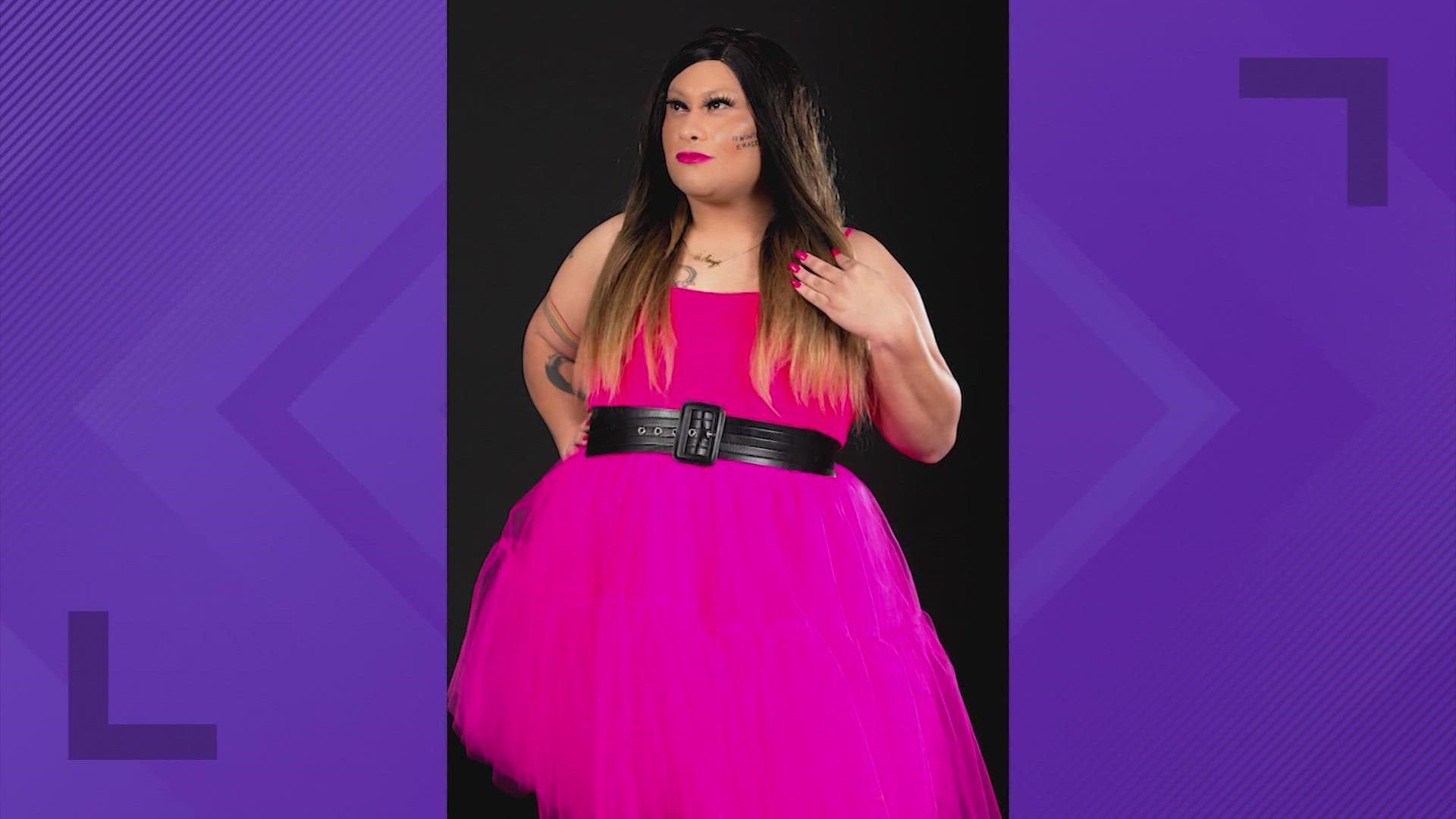HOUSTON — Hispanic heritage is so diverse. But one community that doesn't get a lot of visibility is the LGTBQ community.
"As soon as I came out and said I'm a trans woman, I was so empowered - I was so ready to conquer the world as the strong, Latina woman that I am."
Eden Torres is an activist who founded the non-profit organization, Pride Portraits. She photographs members of the LGBTQIA+ community and allies, to promote visibility of the community.
As a baby, she was adopted from El Salvador, and admits, not speaking Spanish is an insecurity. But she hasn't let that stop her from connecting with her roots.
"It means I show up when my Latina trans friends invite me places, I listen to them, I learn from them," says Torres.
English is a second language for Yoselyn Colindres, who moved to Houston from Honduras when she was 14 years old. It was around the time she came out to her mother as transgender.
"She was like no, you can't be a woman," says Colindres. "I was rejected from her, and that really made my life hard."
But Colindres says she wasn't surprised by her mother's reaction. She says Latin culture and the Catholic faith have long stigmatized the LGBTQIA+ community.
"We are trying to open people’s minds - we don’t want to hurt nobody, we just want to be us, ourselves."
Many transgender youths not only face rejection but homelessness and violence.
The Human Rights Campaign reports that, so far this year, at least 38 transgender or gender non-conforming people, have been killed in the United States. And the organization notes that in past years, most victims were Black or Latin transgender women.
"I learned about the hardships of our lives," says Torres. "I've learned about the fear [of] being hunted to be killed, and the survival sex work that sometimes we have to go through because we can’t get jobs."
Emerging musician Santino Alcoser says he always had support from family while growing up in San Antonio, with Mexican and Spanish roots. But it didn't make his journey, any easier.
"I was 3 years old, maybe, and I used to pray out the window like God make me a boy," says Alcoser.
And he says cultural expectations of what it means to be a Latin man, have been another hurdle for the 26-year old.
"In Latino cultures, especially for very traditional people, there is that machismo like, 'You gotta be tough, you gotta provide.'"
Still - for all three, there is a sense of pride.
"I love to cook, I'm always cooking for my family - that's why I love being a Latina woman," says Colindres.
"I'm my authentic self. I'm Latino and that's that. It has nothing to do with whether I speak Spanish, or I'm big and tough," says Alcoser.
"Even if we have this language barrier, what connects us is the color of our skin and it should be celebrated," says Torres.

